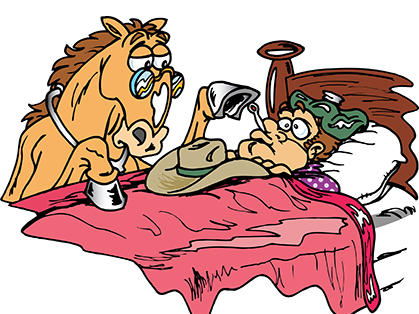Vets Call For Essential Nationwide Border Permits During COVID-19

AVA
The Australian Veterinary Association (AVA) joins the National Farmers Federation (NFF) in calling upon the federal government to urgently establish a nationwide permit for the safe movement of agricultural workers, including livestock and equine veterinarians.
AVA President Dr Warwick Vale labelled the current situation ‘untenable’ and said that it was causing direct harm to farmers, vets, and rural communities. “Border restrictions vary between each state and territory government; for a workforce that needs to cross borders to do their job, it is completely untenable,” said Dr Vale.
The AVA state that the majority of rural veterinarians do not live in the tight border areas as defined as part of the current restrictions. “Using post codes to determine border permit eligibility does not recognize the essential requirements of veterinarians who need to react when required, and on many occasions on short notice,” said Dr Vale.
Recent widespread rainfall has meant that on-farm activity is increasing, so the inability of agricultural workers and veterinarians to cross borders for work was placing significant financial stress on farmers and compromising the welfare of animals. Dr Vale said it was simply unacceptable to place undue hardship on rural communities who have only just recently weathered catastrophic bushfires, droughts and – in some areas – severe flooding.
“The ongoing survival of our agricultural industry and the welfare of our animals must be prioritized. We are calling upon government to act immediately to develop an agricultural worker permit similar to that developed for the freight industry to enable the critical movement of agriculture workers, including veterinarians,” said Dr Vale.
The animal welfare implications due to veterinarians being blocked from certain farms are immense. South Australian-based veterinary clinic owner Rebekah Densley recently told ABC News that animals could suffer and die after her clinic was cut-off from western Victorian clients. The next closest clinic was about 160 kilometres away. “In case of an emergency that can mean the animal dies on its way to veterinary help”, Dr Densley said.
Dr Vale said while the country’s biosecurity was critical, it is also critical that primary production activities be maintained. “Food production and animal welfare are vital to our country’s economic security on the otherside of this crisis, vets must be able to cross state borders where necessary to service clients within the commonsense interpretation of quarantine regulations.”










